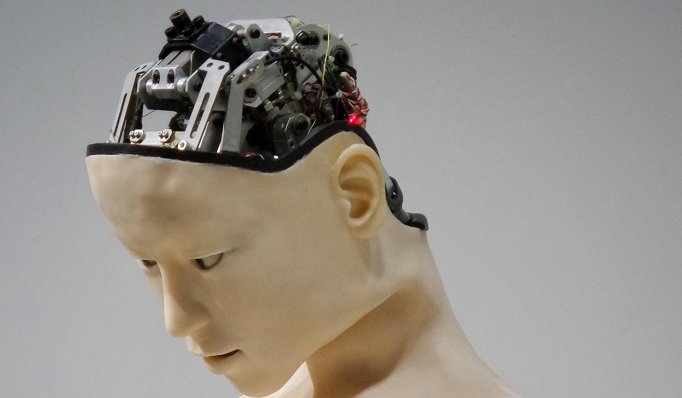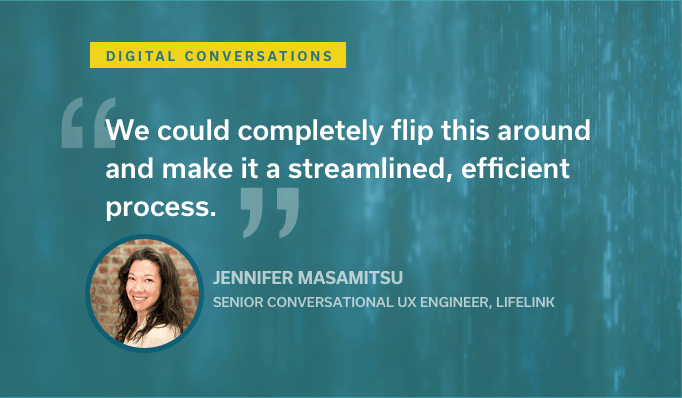For anyone who follows technology news, hardly a day goes by when there’s not a story about Artificial Intelligence (AI) and how a smart machine is getting a step closer to talking like C3P0 or the computer on the Starship Enterprise. Machines that learn and converse are among us today. Some have names like Alexa and Siri, others reside as helpers on websites, and we regularly interact with some without even knowing it — in cars, on phones, at kiosks, and so on. It’s a good bet that we will be putting away our keyboards sooner than we think.
Innovations in conversational engineering and design are getting close to completely replicating natural human interaction. The recent Google Duplex demonstration was so advanced, the virtual assistant completely fooled the humans that interacted with it. While extremely cool, that demo initiated a serious debate around countless potential ethical issues that come with this technology. Still, the advancements cannot be ignored.
AI is maturing. In some industries it’s delivering — in a big way — already. We’ve all seen how Amazon recommends items based on our past searches. Advanced digital marketing means that if we go online and take a look at a pair of shoes on Sunday, we will start seeing shoe ads across all corners of our online world by Monday. It’s no wonder that one of Alexa’s best features is voice enabled shopping on Amazon. Think about that for a second. A conversational appliance with advanced natural language processing (NLP) capabilities connected to an e-commerce site that orchestrates same day delivery capabilities is in use at more than 20 million homes and businesses. Jeff Bezos is the world’s wealthiest person for a reason.
The implications for AI in the healthcare industry — an industry that accounts for nearly a fifth of the US economy — are intriguing. Many believe advances in AI represent the future of healthcare. While likely true, healthcare is nevertheless decades behind consumer-centric companies like Amazon from an innovation perspective. Part of the reason is regulation, and part is that the industry hasn’t, traditionally, really needed to compete for customers in the way that retailers, like Amazon and its brick-and-mortar brethren, have. So IT capabilities lag and the customer experience is often rated in the same zone as government services. Ouch.
Regulations will be with us for a long time, but as value-based carecontinues to edge out traditional fee-for-service models, the healthcare industry will need to evolve and behave more like Amazon. This is why patient engagement and AI technology are such hot topics.
A recent article in AdWeek focused on AI in the healthcare industry. The story touched on some big ideas about diagnosing diseases and even curing cancer with AI. The author also presented some very practical, available-today concepts that focused on the business aspects of healthcare. “AI can help with everything from revenue optimization to improving billing codes for insurance providers to decreasing fraud,” according to Arielle Trzcinski, from Forrester Research. There is also a tremendous patient engagement opportunity with AI. Trzinski added, “What’s driving a lot of it is we’re at this tipping point where patients need to be empowered as consumers and are looking for a retail-like experience.”
For the healthcare industry influencers and pundits, it may be more fun to talk about how AI will diagnose, treat and monitor the entire medical process, or to replace a doctor, but experts agree that that level of automation is still a ways off from becoming reality. Just look at what Tesla is going through trying to gain public and regulatory trust for self-driving cars and imagine the scrutiny that awaits for healthcare.
But the industry is not waiting for Starship Enterprise. Advanced AI-powered conversational chatbot technology is being harnessed by hospitals, pharmaceutical companies, researchers and related service providers. These bots are generally focused on workflow areas such as pre and post visit preparation, education, intake, reminders, Q&A, and ER visits. The power of these bots is in the way they engage patients with ease, and minimal friction, smartly, through the mobile devices that patients use everywhere else in their lives.
Unlike typical mobile apps, advanced conversational bots communicate more like the way we talk and text with friends. They use AI to learn and evolve based on past actions, clinical data, and explicitly stated preference. This benefits medical providers by elevating and widening their communication game, which in turn improves patient satisfaction, compliance, provider brand, and — ultimately — the care and outcomes of the patients themselves.
Conversational bots and AI have a real and significant role to play today in hundreds of areas across healthcare that may not be as futuristic as replacing a smart doctor — and this is where the immediate and sizable opportunity is right now. While the big thinkers continue the drive to create a machine that can treat patients without any human intervention, the industry should embrace conversational technology that is available, proven, and capable of delivering high returns in hundreds of areas that can make a difference. The talking will continue and the race to Dr. C3P0 will continue but the providers can immediately move into AI-enabled conversational chatbots and start engaging patients to improve quality and outcomes across the board.


.png)





